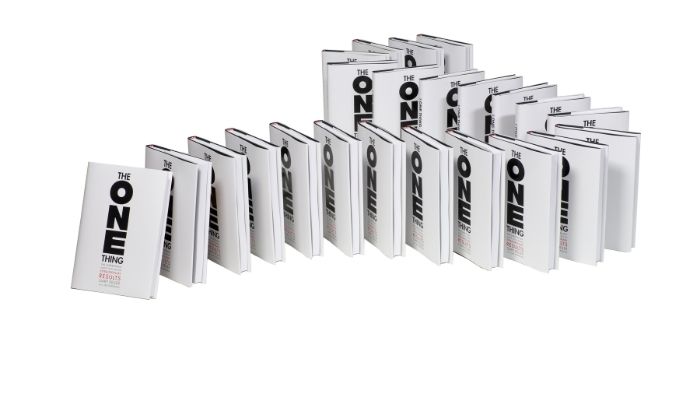
It sounds cliché, but life is a journey. For those who have embraced The ONE Thing, that journey means following their ONE thing. And no two journeys are the same.
For some, the path toward realizing your goals is a well-worn one. With proven habits and profound clarity, these beaten paths are easier to navigate. For others, the path to clear goals is a fresh one — full of weeds and unexpected obstacles. Still, no matter the path or the experience, we can all find common ground. There are a myriad of things to enjoy and learn from each other as we all embark on our personal journeys. This spring, as you revaluate your goals, we suggest you stop and recenter how to think about your own personal path to your ONE thing.
Don’t Compare Yourself to Others, Compare Yourself to You
One of the easiest traps people fall into is one of comparison. It’s an incredibly natural to focus on ourselves in relation to others. After all, if you were in a race, would you be paying attention to you or the person in front of you?
Our life and goals aren’t a race.
No matter how competitive we may be, life isn’t a competition. And when we constantly compare ourselves to others, where they are and what they’ve done, it can impact your own personal growth. As a budding roller derby skater, I can’t tell you the number of times I compared myself to others: other new skaters, veteran skaters – pretty much everybody.
Sometimes, I’d feel so anxious about not being as good as other skaters, that I wouldn’t bother putting myself out there or trying a new skill for fear of looking ridiculous.
But that thought itself is ridiculous. You don’t become a good skater overnight. You become a good skater through trial and errors. (And believe me, there was a lot of error.) Once I got over my insecurities and stopped comparing myself to others, my skating took off. I tried everything I could, no matter how I looked or how much time it took me to learn a new trick. And the same holds true for everyone who compares themselves to others.
In fact, studies have shown that focusing on the success of others can negatively impact your mental and physical health over time.
There’s only one person who you should compare yourself to: you.
Shift away from social comparisons. Instead, focus on what psychologists call a temporal comparison.
A temporal comparison is a comparison where we focus on where we used to be in the past. For instance, taking stock of where you were last year, five years ago, and so on. This creates a more realistic picture that improves mental well-being because it allows us to center our personal growth. This is important, because we aren’t anyone else – we’re ourselves. We don’t need to focus on what success and happiness looks like for someone else, we need to define that for ourselves and celebrate our own triumphs.
Don’t Sweat the Setbacks
In Homer’s Odyssey, it took Odysseus ten years to find his way back home. Walt Disney went bankrupt several times. Luke Skywalker lost a hand — and a father and an uncle and an aunt — there are plenty of stories of people who stumbled or were blown off course on their way to achieving their goals. But one of the best things we can learn is that stumbling out of the gate — or at any other part of the race — isn’t what matters.
What matters is whether or not we get back up and give ourselves the opportunity to fall again.
This is part of what has become known as a Growth Mindset. According to Carol Dweck, there are two types of mindsets: fixed and growth. A fixed mindset is focused on absolutes. In many ways, it mirrors an idea of perfection, where we are either able to do something or we aren’t.
Often, this mindset leads to stagnation and a fear of being wrong about our own capabilities. For example, if I held a fixed view that I was great at basketball, would I be willing to put that to the test and take a buzzer-beater, potentially game-winning shot? Or would I be more willing to pass the ball and keep my beliefs about myself intact?
Fixed mindsets turn opportunities for growth into full-fledged identity crises.
Growth mindsets are based, in part, on resilience. That is to say, when faced with a challenge, failure or the unexpected, people with a growth mindset aren’t easily discouraged to make the attempt. Instead, they use these opportunities as a chance to grow.
By using obstacles as a means to learn, you can reframe failure as something positive. It’s a learning experience, a missed attempt on the way to figuring out what does work. That way, all of your setbacks become a part of the larger ups and downs of your ONE thing journey instead of the end.
Let’s Celebrate Together
This month is our birthday, and we hope that you’ll take the time to celebrate your accomplishments with us — after all, we wouldn’t be here without this incredible community.
What are some of the things you’ve accomplished since you started your journey that you’re most proud of? Let us know in the comments on our Facebook page.
